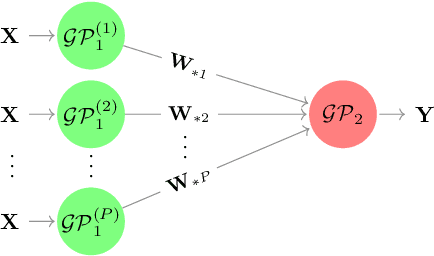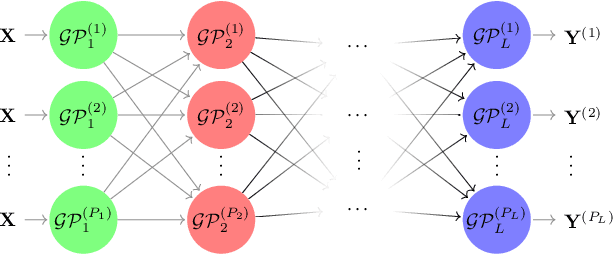Serge Guillas
Embedding machine-learnt sub-grid variability improves climate model biases
Jun 13, 2024



Abstract:The under-representation of cloud formation is a long-standing bias associated with climate simulations. Parameterisation schemes are required to capture cloud processes within current climate models but have known biases. We overcome these biases by embedding a Multi-Output Gaussian Process (MOGP) trained on high resolution Unified Model simulations to represent the variability of temperature and specific humidity within a climate model. A trained MOGP model is coupled in-situ with a simplified Atmospheric General Circulation Model named SPEEDY. The temperature and specific humidity profiles of SPEEDY are perturbed at fixed intervals according to the variability predicted from the MOGP. Ten-year predictions are generated for both control and ML-hybrid models. The hybrid model reduces the global precipitation bias by 18\% and over the tropics by 22\%. To further understand the drivers of these improvements, physical quantities of interest are explored, such as the distribution of lifted index values and the alteration of the Hadley cell. The control and hybrid set-ups are also run in a plus 4K sea-surface temperature experiment to explore the effects of the approach on patterns relating to cloud cover and precipitation in a warmed climate setting.
Deep Gaussian Process Emulation using Stochastic Imputation
Jul 04, 2021



Abstract:We propose a novel deep Gaussian process (DGP) inference method for computer model emulation using stochastic imputation. By stochastically imputing the latent layers, the approach transforms the DGP into the linked GP, a state-of-the-art surrogate model formed by linking a system of feed-forward coupled GPs. This transformation renders a simple while efficient DGP training procedure that only involves optimizations of conventional stationary GPs. In addition, the analytically tractable mean and variance of the linked GP allows one to implement predictions from DGP emulators in a fast and accurate manner. We demonstrate the method in a series of synthetic examples and real-world applications, and show that it is a competitive candidate for efficient DGP surrogate modeling in comparison to the variational inference and the fully-Bayesian approach. A $\texttt{Python}$ package $\texttt{dgpsi}$ implementing the method is also produced and available at https://github.com/mingdeyu/DGP.
 Add to Chrome
Add to Chrome Add to Firefox
Add to Firefox Add to Edge
Add to Edge